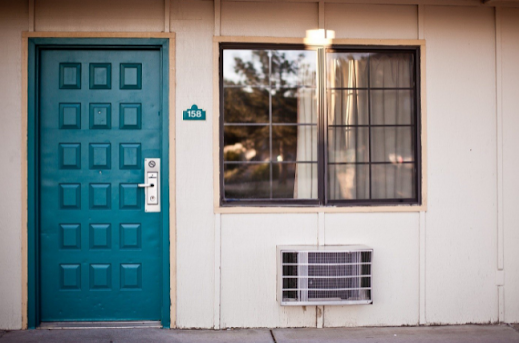What Is HVAC? Understanding Heating, Ventilation, and Air Conditioning Systems
In modern buildings, maintaining a comfortable indoor environment isn’t just a luxury it’s a necessity. Whether it’s a residential home, commercial office, or industrial space, the HVAC system plays a crucial role in regulating indoor temperature, air quality, and overall comfort. But what exactly is HVAC, and why is it so important?
In this comprehensive guide, we’ll break down the fundamentals of HVAC (Heating, Ventilation, and Air Conditioning) systems how they work, why they matter, and what benefits they offer to building occupants and property owners.
What Does HVAC Stand For?
HVAC is an acronym that stands for Heating, Ventilation, and Air Conditioning. Together, these three components work to create and maintain an indoor environment that is:
- Thermally comfortable (not too hot or too cold)
- Well-ventilated (fresh air circulation)
- Free from harmful pollutants or excess moisture
An HVAC system is essentially the backbone of a building’s indoor climate control system. It’s designed not just to provide heating and cooling, but also to ensure clean, healthy air through filtration and controlled ventilation.
The Core Functions of an HVAC System
1. Heating
The heating component of an HVAC system helps to maintain warmth during colder months. Heating is often achieved through:
- Furnaces (powered by gas, electricity, or oil)
- Heat pumps
- Boilers
- Radiant floor systems
These systems work by raising the temperature of indoor air and distributing it through ducts, radiators, or underfloor systems, depending on the design. In residential homes, forced-air systems are common, where heated air is pushed through ducts and into rooms via vents.
2. Ventilation
Ventilation refers to the process of exchanging or replacing indoor air with outdoor air. It’s vital for maintaining indoor air quality (IAQ) and removing:
- Odors
- Smoke
- Moisture
- Carbon dioxide
- Volatile organic compounds (VOCs)
- Dust and allergens
- Airborne bacteria
Good ventilation prevents a build-up of indoor pollutants and helps control humidity levels. It can be natural (via windows and vents) or mechanical (via fans, ductwork, and air handlers). Most HVAC systems incorporate filters that trap airborne contaminants to improve air cleanliness.
3. Air Conditioning
Air conditioning cools the indoor environment during warmer months. It does this by removing heat and moisture from the air. The cooling cycle typically involves:
- A refrigerant to absorb heat
- A compressor to circulate the refrigerant
- An evaporator coil to release cooled air
- A condenser coil to expel absorbed heat outside
In many systems, heating and cooling use the same ductwork and thermostat for centralized control.
How HVAC Systems Respond to Outdoor Conditions
One of the primary benefits of HVAC systems is their ability to adapt to outdoor temperature changes. As seasons shift, the system automatically adjusts to keep the indoor environment stable.
For example:
- On a hot summer day, the system kicks in to reduce humidity and cool indoor air.
- During winter, it ensures the space remains warm and comfortable.
- When outdoor air quality worsens (due to smoke or pollen), advanced filtration components help keep indoor air cleaner.
By sensing temperature, humidity, and air quality levels, a well-designed HVAC system keeps the indoor climate balanced year-round.
Why HVAC Systems Are Essential
Whether you live in a single-family home or work in a high-rise office building, HVAC systems offer several important benefits:
1. Improved Air Quality
HVAC systems help remove indoor pollutants that may lead to respiratory problems, allergic reactions, or general discomfort. HEPA filters, UV light systems, and humidifiers/dehumidifiers are often integrated into HVAC systems to maintain air purity.
2. Energy Efficiency
Modern HVAC systems are designed to be more energy-efficient than ever. With programmable thermostats, zone control, and variable-speed motors, these systems consume less energy and reduce utility costs without sacrificing comfort.
3. Consistent Comfort
No matter the outdoor conditions, HVAC systems maintain a consistent and comfortable indoor environment. Proper insulation and zoning allow rooms to be cooled or heated independently for better temperature control.
4. Moisture and Humidity Control
Too much moisture indoors can lead to mold, mildew, and even structural damage. HVAC systems manage indoor humidity levels, reducing the chances of such issues and ensuring healthier living spaces.
5. Noise Reduction
Compared to old standalone heating or cooling units, modern centralized HVAC systems operate more quietly, improving comfort without the disruptive background noise.
Common Types of HVAC Systems
HVAC systems vary depending on building size, climate, and user needs. Here are a few commonly used types:
- Split Systems: Separate indoor and outdoor units for heating and cooling.
- Packaged Systems: All components housed in a single unit, often installed outdoors.
- Ductless Mini-Split Systems: No ductwork; ideal for retrofits or room additions.
- Central HVAC Systems: Typically used in larger buildings with extensive ductwork and advanced zone control.
- Geothermal Systems: Use ground-source heat pumps for eco-friendly energy usage.
Who Installs and Maintains HVAC Systems?
ACcontractors are trained professionals responsible for the design, installation, repair, and maintenance of HVAC systems. They ensure that your system:
- Is correctly sized for your home or building
- Complies with local building codes and energy efficiency standards
- Is properly maintained for peak performance
Regular maintenance includes tasks like:
- Cleaning filters and ducts
- Inspecting electrical components
- Checking refrigerant levels
- Ensuring proper airflow
Scheduling annual inspections helps extend the lifespan of your system and reduces the risk of unexpected breakdowns.
When Should You Upgrade Your HVAC System?
While HVAC systems are built to last, they don’t last forever. Here are signs it may be time for an upgrade:
- Your system is more than 10–15 years old
- Rising energy bills despite regular usage
- Frequent breakdowns or uneven heating/cooling
- Excessive noise or unusual smells
- Poor indoor air quality or increased humidity
Modern systems offer better efficiency, smart controls, and improved air quality features making replacement a worthwhile investment over time.




Comments
Post a Comment